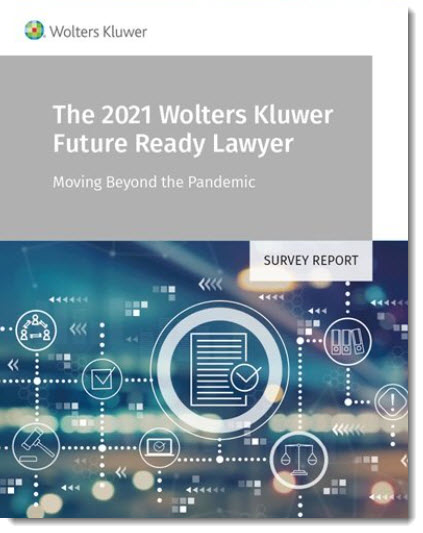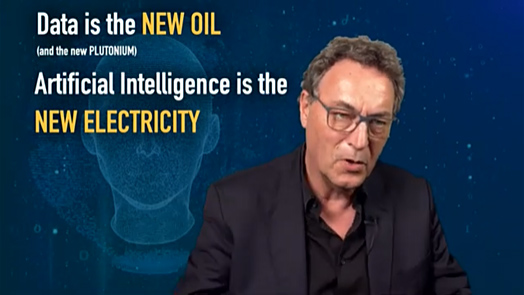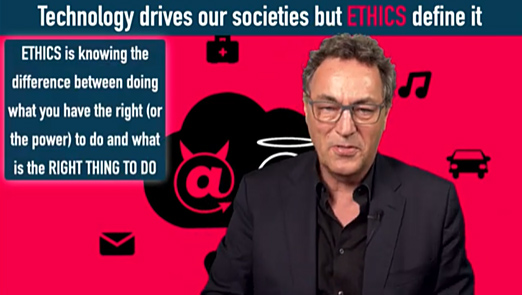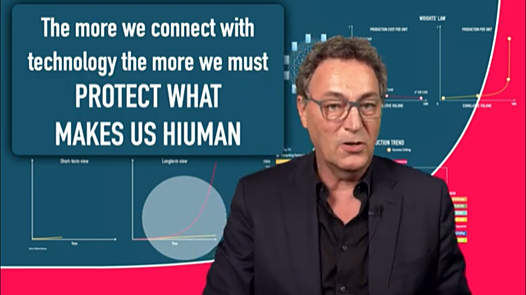From DSC:
Again, as you can see from the items below…there are various plusses and minuses regarding the use of Artificial Intelligence (AI). Some of the items below are neither positive or negative, but I found them interesting nonetheless.
How Amazon is tackling the A.I. talent crunch — from fortune.com by Jonathan Vanian
Excerpt:
“One way Amazon has adapted to the tight labor market is to require potential new programming hires to take classes in machine learning, said Bratin Saha, a vice president and general manager of machine learning services at Amazon. The company’s executives believe they can teach these developers machine learning basics over a few weeks so that they can work on more cutting-edge projects after they’re hired.”
…
“These are not formal college courses, and Saha said the recruits aren’t graded like they would be in school. Instead, the courses are intended to give new developers a foundation in machine learning and statistics so they can understand the theoretical underpinnings.”
Machine Learning Can Predict Rapid Kidney Function Decline — from sicklecellanemianews.com by Steve Bryson PhD; with thanks to Sam DeBrule for this resource
Excerpt:
Machine learning tools can identify sickle cell disease (SCD) patients at high risk of progressive kidney disease as early as six months in advance, a study shows. The study, “Using machine learning to predict rapid decline of kidney function in sickle cell anemia,” was published in the journal eJHaem.
NYPD’s Sprawling Facial Recognition System Now Has More Than 15,000 Cameras — from vice.com by Todd Feathers; with thanks to Sam DeBrule for this resource
The massive camera network is concentrated in predominantly Black and brown neighborhoods, according to a new crowdsourced report.
Excerpt:
The New York City Police Department has built a sprawling facial recognition network that may include more than 15,000 surveillance cameras in Manhattan, Brooklyn, and the Bronx, according to a massive crowdsourced investigation by Amnesty International.
…
“This sprawling network of cameras can be used by police for invasive facial recognition and risk turning New York into an Orwellian surveillance city,” Matt Mahmoudi, an artificial intelligence and human rights researcher at Amnesty, wrote in the group’s report. “You are never anonymous. Whether you’re attending a protest, walking to a particular neighbourhood, or even just grocery shopping—your face can be tracked by facial recognition technology using imagery from thousands of camera points across New York.”
Related to that article is this one:
The All-Seeing Eyes of New York’s 15,000 Surveillance Cameras — from wired.com by Sidney Fussell
Video from the cameras is often used in facial-recognition searches. A report finds they are most common in neighborhoods with large nonwhite populations.
Excerpt:
A NEW VIDEO from human rights organization Amnesty International maps the locations of more than 15,000 cameras used by the New York Police Department, both for routine surveillance and in facial-recognition searches. A 3D model shows the 200-meter range of a camera, part of a sweeping dragnet capturing the unwitting movements of nearly half of the city’s residents, putting them at risk for misidentification. The group says it is the first to map the locations of that many cameras in the city.
Don’t End Up on This Artificial Intelligence Hall of Shame — from wired.com by Tom Simonite
A list of incidents that caused, or nearly caused, harm aims to prompt developers to think more carefully about the tech they create.
Excerpt:
The AI Incident Database is hosted by Partnership on AI, a nonprofit founded by large tech companies to research the downsides of the technology. The roll of dishonor was started by Sean McGregor, who works as a machine learning engineer at voice processor startup Syntiant. He says it’s needed because AI allows machines to intervene more directly in people’s lives, but the culture of software engineering does not encourage safety.















